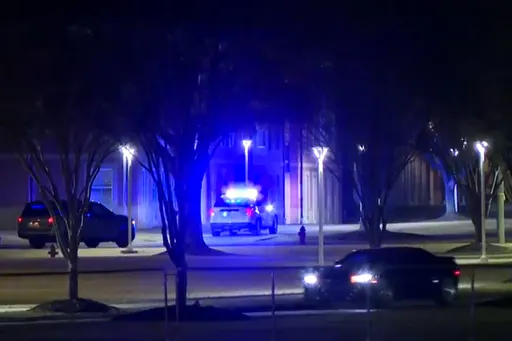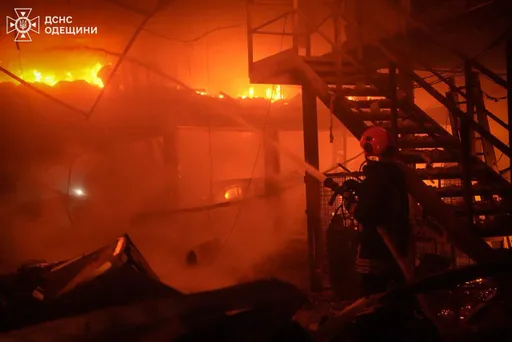Mallika Malini is losing her eyesight and without cataract surgery she stands to go blind for good.
Sri Lanka has universal healthcare so the surgery should be taken care of, but the current economic crisis means that Malini will have to buy the surgery equipment herself and the medicines she needs are not available at government facilities.
In the private market, the medicine costs 2,000 Sri Lankan rupees ($10) and the equipment for her surgery, 6,000 Sri Lankan rupees ($20).
Unable to afford the costs, the 65-year-old Sri Lankan housewife is using steroids and antibiotic eye drops for temporary relief.
“My husband has retired, he was a helper in a government office before. Now my three daughters are doing small jobs to bear our day to day expenses,” Malini told TRT World.
“It is very hard for us to afford the cost of surgery and my medicine and day by day my eyesight is going.”
Anulawathi, a heart patient in Kegalle town of Sabaragamuwa Province, is also having a tough time finding medication that she needs to take on a monthly basis.
“For the past two months, I have been unable to find Digoxin [a medication used to treat various heart conditions] in government hospitals,” she told TRT World.
“I have to go to private pharmacies to buy it which costs me 5,000 Sri Lanka rupees ($15) per month. From getting medicines for free to paying that much monthly is making it very difficult for us.”
Under the weight of Sri Lanka’s worst economic crisis, Malini’s and Anulawathi’s struggle to find medicines and equipment in state-run hospitals shows how fragile Sri Lanka's healthcare system has become.
President Gotabaya Rajapaksa's government is unable to import essentials including medicines and fuels due to the lack of foreign exchange in the country.
Analysts and economic experts have blamed Rajapaksa’s administration for its decision in 2019 to make deep tax cuts and delay talks with the International Monetary Fund (IMF) that they say have led to the economic collapse.
The country’s economy that heavily relies on tourism has been hard hit by the Covid-19 pandemic and a rise in oil prices in the wake of the war in Ukraine.
Thousands of protesters have taken to the streets since last week and are demanding Gotabaya's ouster.
TRT World spoke to two doctors who have created a Whatsapp group to gather funds from abroad. They said that hospitals in the country are in dire need of medicine and equipment in order to prevent deaths.
The group contains Sri Lankans from the United Kingdom, Qatar, US and the UAE who are urgently arranging funds and medical equipment to be sent to the country.
Dr Rukshan Bellana, President of the Government Medical Officers Forum, said the cancer drugs are in severely short supply as well as anesthetics.
“Until last week we didn't have clot diluting medicine for heart attack, especially Tenecteplase and Heparin. Only this week we got it,” he told TRT World.
“The problem is that the supply chain is so unpredictable. Some of the drugs we didn't have last week are available now. But the stocks are so low and we are not sure if we will have those in the next coming weeks. This is why doctors are agitated.
“Never in the history of Sri Lanka (have) doctors had to be uncertain about medical supplies.”
Bellana said several surgeries have been postponed and most hospitals have been limited to emergency, casualty and malignancy surgeries because of a lack of surgical supplies.
'Catastrophic number of deaths'
The Sri Lanka Medical Association, the country's oldest professional medical body, wrote to Rajapaksa last week that very soon even emergency treatment might not be possible that could result in “catastrophic number of deaths”.
Out of 2,500 drugs that the government provides to state-run hospitals, 60 are unavailable and out of that, 20 are critical life saving, according to Bellana.
READ MORE: Sri Lanka seeks donations from citizens abroad, offers talks to protesters
In a letter shared on social media, the Perinatal Society of Sri Lanka issued a list of supplies and called for urgent donations. He said that hospitals are running out of endotracheal (ET) tubes that help newborn infants with respiratory distress.
"We have used almost all the stocks and no ET tubes will be available in a few weeks. We may have to reuse ET tubes which is not ideal," the society's president Saman Kumara said in a letter shared on social media.
One of the medical representative who wishes to remain anonymous told TRT World that major state-run hospitals in Colombo are in need of urethral catheters, surgical tubes, umbilical cord clamps, antibiotics and glucose test strips.
“Pregnant ladies have to get their own equipment for their delivery as hospitals are running short,” he told TRT World.
“We can't do our job also. We are unable to sell our products as their values are very high.”
He said the cost of medical supplies had increased by 30-40 percent after Sri Lanka devalued its currency amid soaring inflation.
According to the Finance Minister Ali Sabry, the World Bank has agreed to release an immediate grant of $10M to purchase pharmaceutical drugs.
But for patients like Malini and Anulawathi, time is running out.























